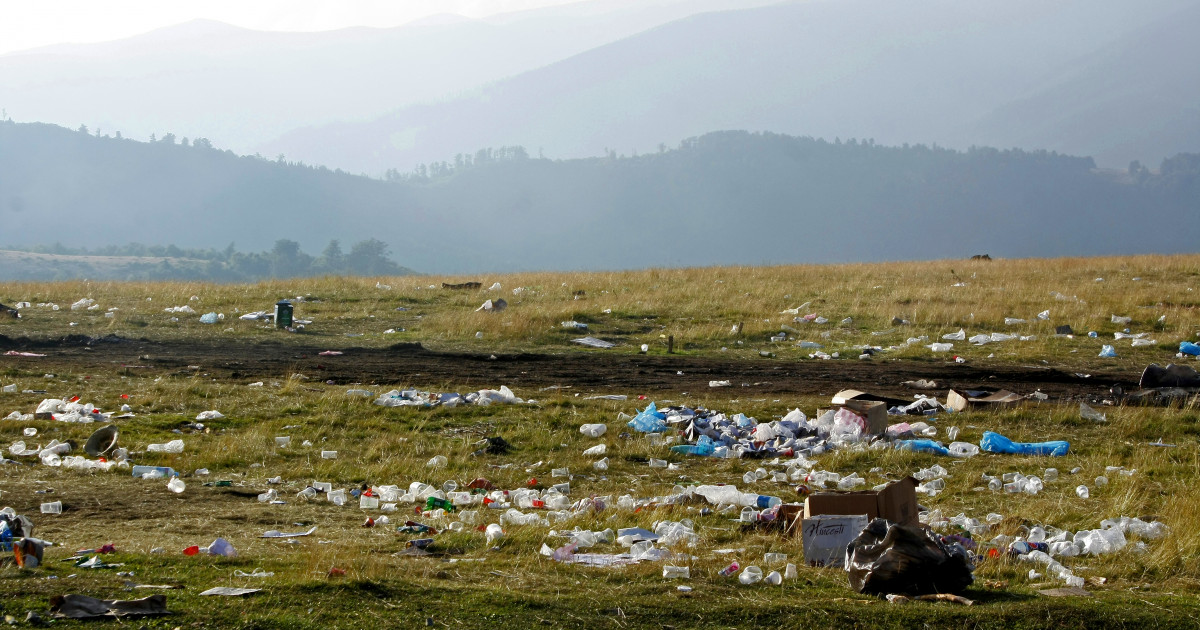
[ad_1]
Waste, nature, water and air quality are areas where Romania has legislation that does not comply with the directives of the European Union, and the European Commission is unhappy with the lack of action, which is why it initiated several infringement procedures on Friday ( violation of the EU Treaty) whose last step is to take the matter to the Court of Justice of the EU and impose sanctions.
Waste: Commission calls on Romania to close and rehabilitate illegal landfills
Therefore, the European Commission urges Romania to close, seal and restore from an ecological point of view a number of 15 illegal landfills which have benefited from a transitional period in accordance with the Romanian Accession Treaty. The timetable for the closure and rehabilitation of the remaining 15 landfills is uncertain, as work has not yet begun to close most of these landfills.
Therefore, the Commission sent to Romania on Friday a delay letter. It is a first step in the infringement procedure. Romania has two months to reply to the letter. Otherwise, the Commission may decide to issue a reasoned opinion, which is the second stage of the procedure.
In accordance with the Waste Framework Directive (2000/60 / EC), Member States have an obligation to recover and dispose of waste in a way that does not endanger human health and the environment by prohibiting the abandonment, discharge or uncontrolled disposal of waste. Waste must be treated without creating a risk to water, air, soil, plants or animals, without causing nuisance due to noise or odors and without negatively affecting the landscape or areas of special interest., shows the European Commission.
In Romania, 101 non-compliant landfills, which benefited from a transition period, should have been closed by July 2019. According to information received from Romania, only 86 landfills are currently closed and rehabilitated.
Nature: Commission calls on Romania to ensure the protection of habitats and species
The Commission calls on Romania to fully transpose Directive 92/43 / EEC on the conservation of natural habitats and wild fauna and flora into national legislation. This directive contributes to the protection of biodiversity in the European Union. Incorrect transposition of the directive’s provisions could jeopardize its conservation objectives, the European Commission notes.
Among other issues, Romanian law does not explicitly mention that the conservation measures included in the management plans must take into account the ecological needs of the types of natural habitats and species present in the territory of those sites. This has a direct impact on the quality of management plans, as they may not contain the necessary measures to protect these types of habitats and species, according to the European executive.
Too, national law limits the scope from the main provisions of the Directive to activities carried out within Natura 2000 sites. This excludes all other possible causes of damage or disturbance from outside the sites.
Given that environmental governance plays a key role in facilitating the proper functioning of the various sectoral rules, the Commission has decided to send to Romania a formal notification letter. Romania has two months to remedy the situation; otherwise, the Commission may decide to send a reasoned opinion.
Water: Commission calls on Romania to comply with EU rules on urban wastewater
The commission decided on Friday to send Romania a additional delay letter for non-compliance with EU regulations on urban wastewater treatment (Council Directive 91/271 / EEC) in large urban areas.
According to the directive, cities have an obligation to establish the necessary infrastructure to collect and treat their urban wastewater. Untreated wastewater can endanger human health and contaminate lakes, rivers, soils, groundwater, and coastal waters.
According to the latest data provided by the Romanian authorities, while some large agglomerations did not ensure proper collection of urban wastewater, others were deemed non-compliant.
A number of 188 large agglomerations still do not meet the urban wastewater collection requirements set out in EU legislation, while 192 large agglomerations do not comply with secondary treatment obligations and 193 large agglomerations do not comply with more stringent treatment obligations.
Therefore, the Commission today addresses Romania a late letter. This case is part of a horizontal action involving twelve Member States that have benefited from temporary exceptions in accordance with their accession treaties. Romania has two months to reply to the letter; otherwise, the Commission may decide to issue a reasoned opinion.
Air quality: Commission calls on Romania to adopt national air pollution control programs
The european commission insistently urges Greece and Romania will adopt national air pollution control programs in accordance with Directive (EU) 2016/2284.
The Directive requires Member States to develop, adopt and implement national air pollution control programs, to achieve some Air quality levels that do not cause significant adverse effects or risks to human health and the environment.
The directive states emission reduction commitments for anthropogenic air emissions from Member States for different substances – sulfur dioxide, nitrogen oxides, volatile organic compounds other than methane, ammonia and fine particles (PM2.5). The emissions generated by these pollutants, as well as their impact must be monitored and reported.
That is why the European Commission sent in this case on Friday a reasoned opinion. Greece and Romania are now available two months to take appropriate action. It is the penultimate stage before the Brussels executive take the matter to the Court of Justice of the European Union.
Through its monthly package of non-compliance decisions, the European Commission seeks to prosecute Member States that have not fulfilled their obligations under EU law. These decisions, which cover various sectors and policy areas of the EU, aim to ensure the correct application of EU law, for the benefit of citizens and businesses.
Editor: Luana Pavaluca